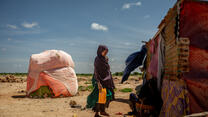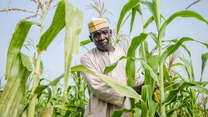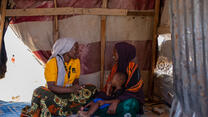The International Rescue Committee (IRC) is pleased to share its new policy brief “Navigating the Climate Crisis in a New Era of Aid: Delivering Impact for Conflict-Affected Communities” ahead of the Berlin Climate Security Conference and COP30, calling for urgent global action to protect communities living at the intersection of climate crisis and armed conflict, where escalating climate shocks exacerbate longstanding vulnerabilities and further increase risks of conflict and displacement.
This toxic feedback loop is set to be dangerously amplified by widespread aid cuts, crippling the very systems that enable communities to build resilience. This erosion of support means that the impacts of the climate crisis will be more severe, the path out of extreme poverty will narrow, the drivers of conflict will intensify, meanwhile costs for disaster response and recovery will rise.
In this new era of aid, climate finance must prioritise grants, deployed with maximum cost-efficiency and delivered with impact to ensure these climate-vulnerable, conflict-affected communities are not neglected. The briefing outlines four key actions required to deliver smart, effective, and targeted support in conflict-affected settings:
- Prioritise grant-based adaptation finance for the epicentre of crisis – committing to a new, equitable adaptation finance goal at COP30 that prioritises the most vulnerable;
- Embrace early action to maximise cost-effectiveness – scaling pre-arranged finance and anticipatory action, adopting a ‘Follow the Forecast’ model prioritising action where climate hazards are most likely to occur;
- Build a new model of resilience for conflict settings that is evidence-based, conflict- and gender-sensitive, community-led, adaptive and supported by cost evidence;
- Deliver climate finance through flexible, people-first partnerships.



